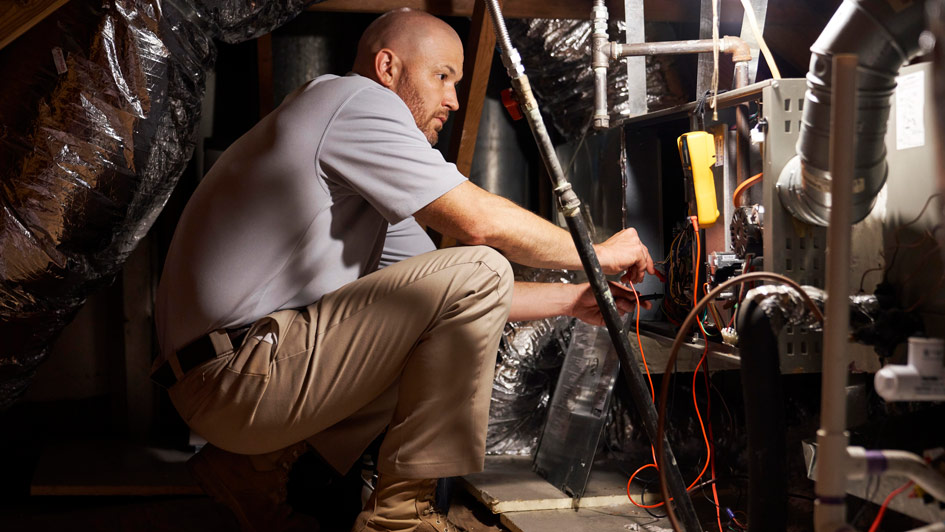
Electrical problems can significantly affect the performance and reliability of your air conditioning (AC) system. In Florida’s hot climate, where AC is essential for comfort, understanding how electrical issues can impact your system is crucial. This guide explores the ways electrical problems can affect your AC and what you can do to address them.
Power Supply Problems
Inconsistent or inadequate power supply can disrupt your AC system:
- Voltage Issues: AC units require a specific voltage to operate correctly. Voltage fluctuations or incorrect voltage can cause the system to malfunction or fail. This might result in frequent tripping of circuit breakers or the system not starting at all.
- Power Outages: Sudden power outages can damage sensitive components in your AC system. When power is restored, it can lead to surges that may affect the system’s electrical parts.
Faulty Wiring
Wiring problems can lead to various issues within your AC system:
- Loose Connections: Loose or corroded electrical connections can result in intermittent performance, reduced efficiency, or complete system failure. Ensuring all connections are secure is crucial for proper operation.
- Damaged Wires: Frayed or damaged wires can cause short circuits, overheating, or even fires. Regular inspections can help identify and address wiring issues before they escalate.
Tripped Circuit Breakers
Circuit breakers protect your AC system from electrical faults:
- Overloading: Circuit breakers can trip if the AC system draws more power than the circuit can handle, often due to overloading or a malfunctioning component. Frequent tripping may indicate an underlying electrical issue that needs attention.
- Faulty Breakers: Sometimes, a tripped circuit breaker might be a sign of a faulty breaker that needs replacement. It’s essential to identify whether the breaker itself is the problem or if there’s an issue with the AC system.
Blown Fuses
Fuses are designed to protect your AC system from electrical surges:
- Fuse Issues: A blown fuse indicates that there was a surge of current that the fuse could not handle. This can be caused by electrical faults, such as short circuits or component failures.
- Regular Checks: Periodically check and replace fuses as needed. Persistent fuse issues may point to more significant electrical problems that require professional inspection.
Faulty Capacitors
Capacitors play a critical role in the operation of your AC system:
- Starting Issues: Capacitors help start the compressor and the fan motor. A faulty capacitor can prevent the system from starting or cause it to run inefficiently.
- Symptoms: Signs of a bad capacitor include humming noises, difficulty starting the system, or irregular operation. Replacing a faulty capacitor can resolve these issues and restore proper function.
Contactor Problems
The contactor is a switch that controls the power supply to the AC components:
- Electrical Faults: A malfunctioning contactor can prevent the AC system from receiving power, leading to operational issues. Contactors that are stuck in the open or closed position can cause problems with the system’s performance.
- Inspection and Replacement: Regularly inspect the contactor for signs of wear or damage and replace it if necessary to ensure reliable operation.
Thermostat Issues
The thermostat controls the temperature and operation of your AC system:
- Electrical Connections: Faulty or loose connections between the thermostat and the AC system can result in incorrect temperature readings or erratic operation. Ensure that the thermostat is properly wired and calibrated.
- Power Supply: A malfunctioning thermostat can also be due to issues with its power supply. Check for proper voltage and connections to maintain accurate temperature control.
Professional Diagnosis and Repair
Addressing electrical issues requires professional expertise:
- Qualified Technicians: Electrical problems in AC systems should be diagnosed and repaired by qualified HVAC technicians. Attempting DIY repairs can be dangerous and may lead to further damage.
- Regular Maintenance: Schedule regular maintenance with a professional to identify and resolve electrical issues before they affect system performance.
Conclusion
Electrical issues can have a significant impact on your AC system’s performance, leading to inefficiency, breakdowns, or even damage. By understanding how these problems can affect your system and ensuring regular inspections and professional repairs, you can maintain a reliable and efficient AC unit. In Florida’s climate, where cooling is crucial, addressing electrical issues promptly will help ensure your AC system operates smoothly and effectively.